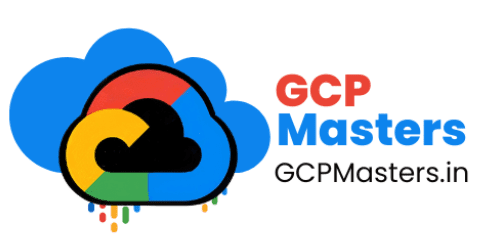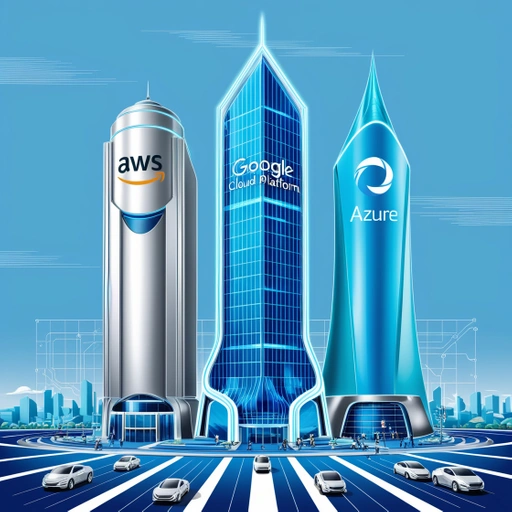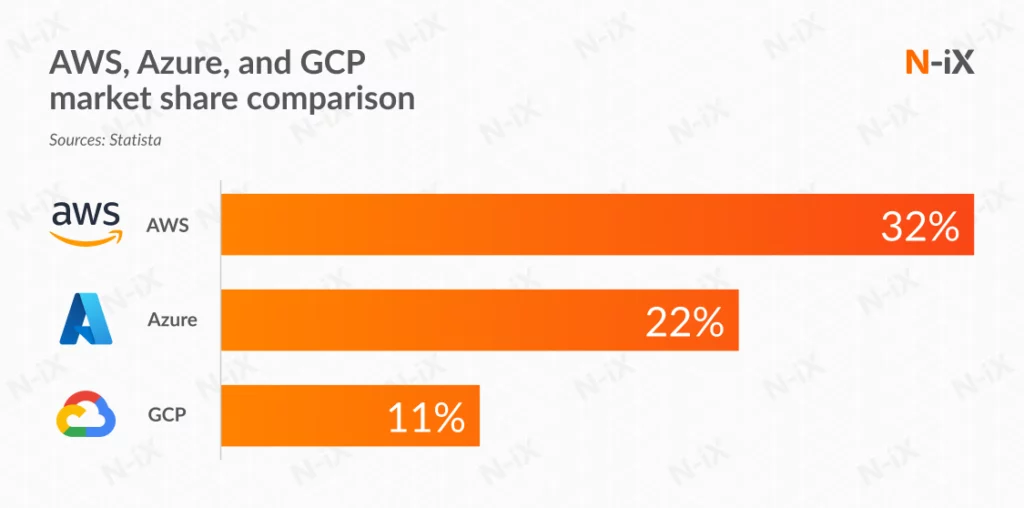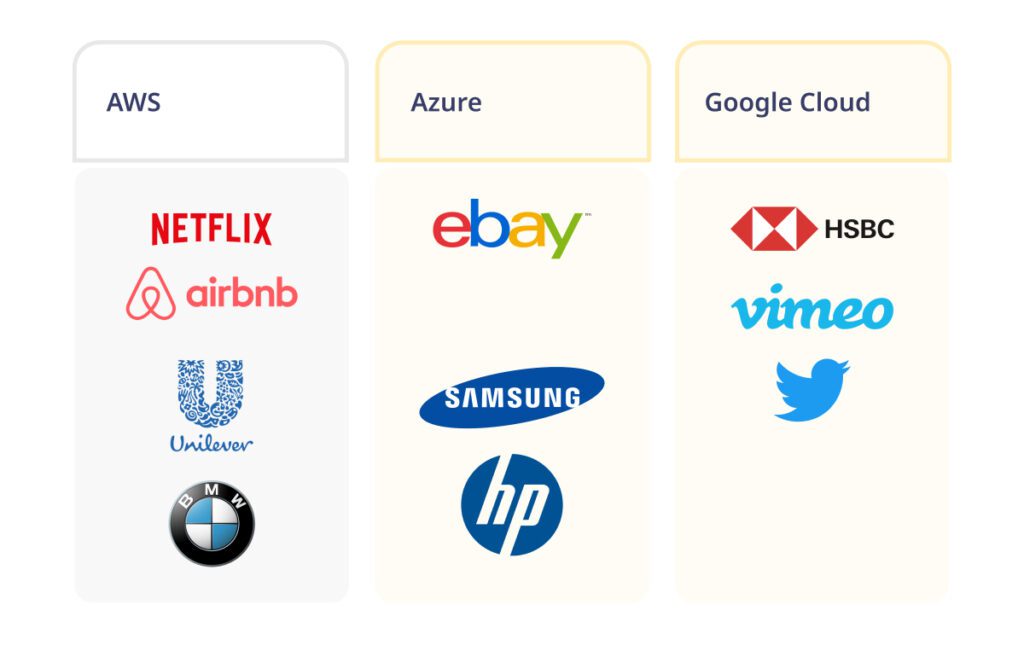Amazon web services

Easy to Navigate : AWS has a user-friendly interface that makes it easier for users to explore and utilise its vast array of services. The AWS Management Console provides intuitive navigation, allowing users to quickly access tools and resources.
Many Tools to Choose From : AWS offers a comprehensive suite of tools and services, ranging from compute and storage to machine learning and analytics. This extensive selection allows businesses to tailor solutions to their specific needs, enabling innovation and efficiency.
Unlimited Server Options : AWS provides virtually unlimited server capacity with its Elastic Compute Cloud (EC2) service, allowing businesses to scale up or down based on demand. This flexibility ensures that companies can handle fluctuating workloads without disruption.
Amazon EC2 Constraints : While AWS offers powerful EC2 instances, there can be limitations in terms of instance types and regional availability. Some users may find these constraints challenging when seeking specific configurations or working in less-served regions.
Amazon EC2 Limitations : Despite the flexibility of EC2, users may encounter limitations in terms of instance types, pricing models, or availability in certain regions. These constraints can impact the ability to optimise performance and cost-effectiveness for specific workloads.
Security Weaknesses : AWS provides robust security tools, but the shared responsibility model places some security responsibilities on the customer. Misconfigurations or inadequate security practices on the user’s end can lead to vulnerabilities, potentially exposing sensitive data.
Microsoft Azure

Data Security : Azure offers strong security features, including advanced threat protection and compliance with major industry standards. Its extensive security certifications and built-in tools help protect data and ensure regulatory compliance.
Cost-Effective : Azure provides flexible pricing options and various cost-saving features, such as reserved instances and autoscaling. This can lead to significant savings, especially when optimising resource usage based on demand.
App-friendly : Azure is designed to support a wide range of applications and development frameworks. Its integration with Microsoft technologies and tools enhances the development, deployment, and management of applications, making it a preferred choice for developers.
Scalable : Azure offers robust scalability options, allowing businesses to easily scale resources up or down based on their needs. This elasticity ensures that applications can handle varying workloads efficiently without performance issues.
Requires Management : While Azure offers extensive features, effective management of resources and services requires ongoing oversight. Users must actively monitor and configure settings to optimise performance and cost.
Requires Platform Expertise : Azure’s vast array of services and capabilities necessitates a certain level of expertise. Organisations may need to invest in training or hire specialists to fully leverage Azure’s features and ensure efficient use.
Difficult Migration : Migrating existing applications and data to Azure can be complex and time-consuming. Organisations may face challenges in adapting their systems to the Azure environment, which can lead to extended migration timelines and potential disruptions.
Google Cloud Platform

G-Suite: GCP offers seamless integration with Google Workspace (formerly G-Suite), enhancing productivity with tools like Gmail, Google Drive, and Google Meet. This integration allows for smooth collaboration and data sharing across platforms.
Insights from AI: GCP leverages advanced AI and machine learning capabilities, providing powerful tools for data analysis and insights. Services like BigQuery and AutoML enable businesses to derive valuable insights and make data-driven decisions efficiently.
Highly Secure: GCP is known for its strong security measures, including encryption, identity and access management, and compliance with major industry standards. Its security infrastructure helps protect data and safeguard against potential threats.
Poor documentation : Some users find that GCP’s documentation can be lacking in detail or clarity, making it challenging to understand and implement certain features. This can slow down development and troubleshooting processes.
Need Management : Effective use of GCP requires active management of resources and configurations. Without proper oversight, users may encounter issues related to performance, cost, or security, necessitating ongoing attention and adjustment.






